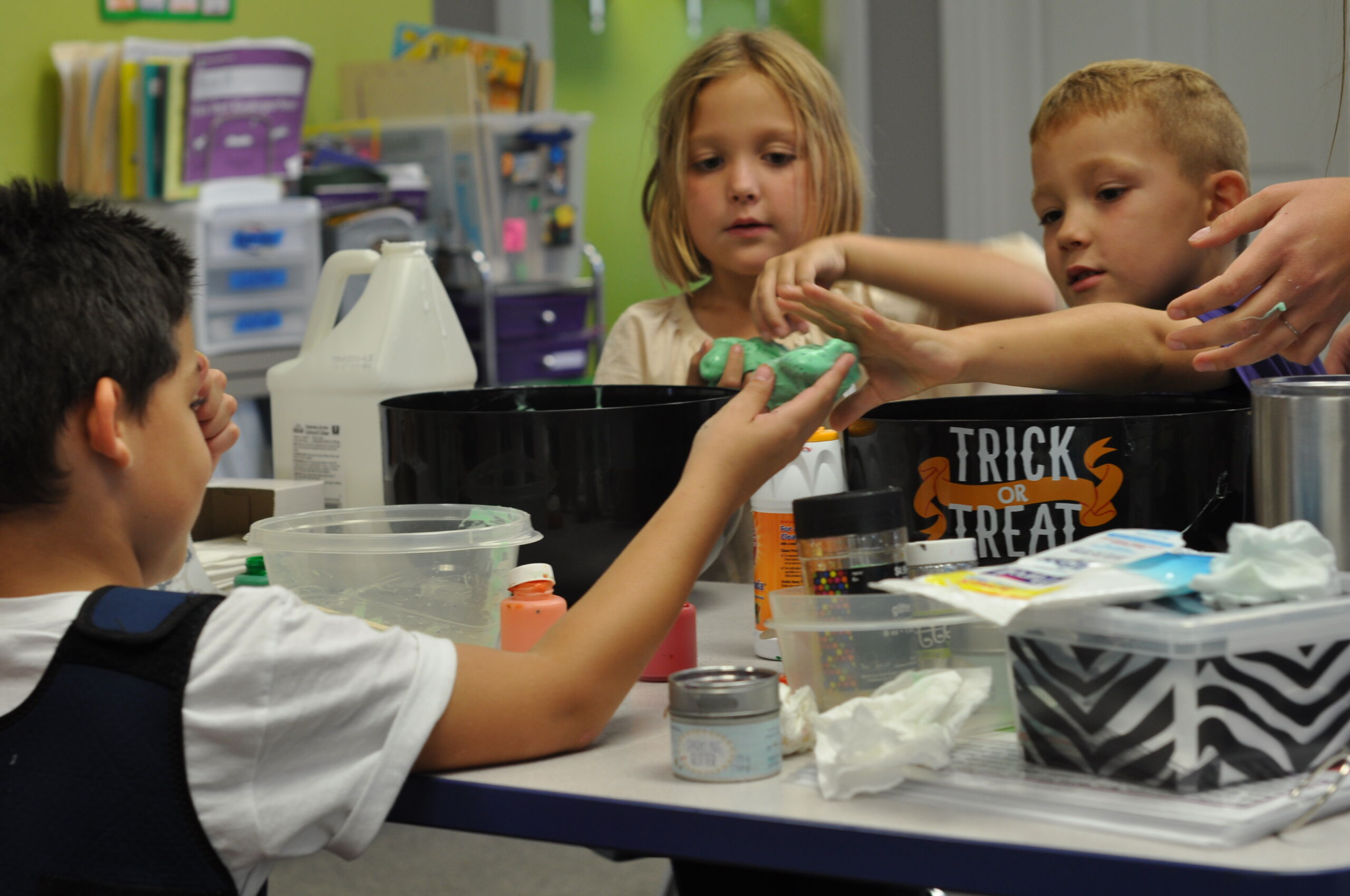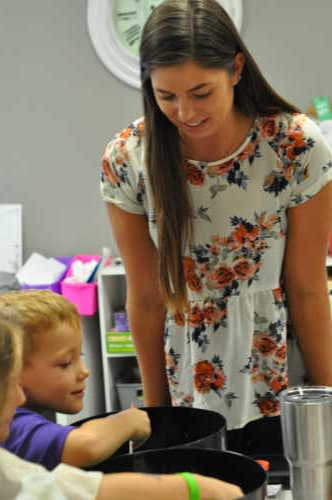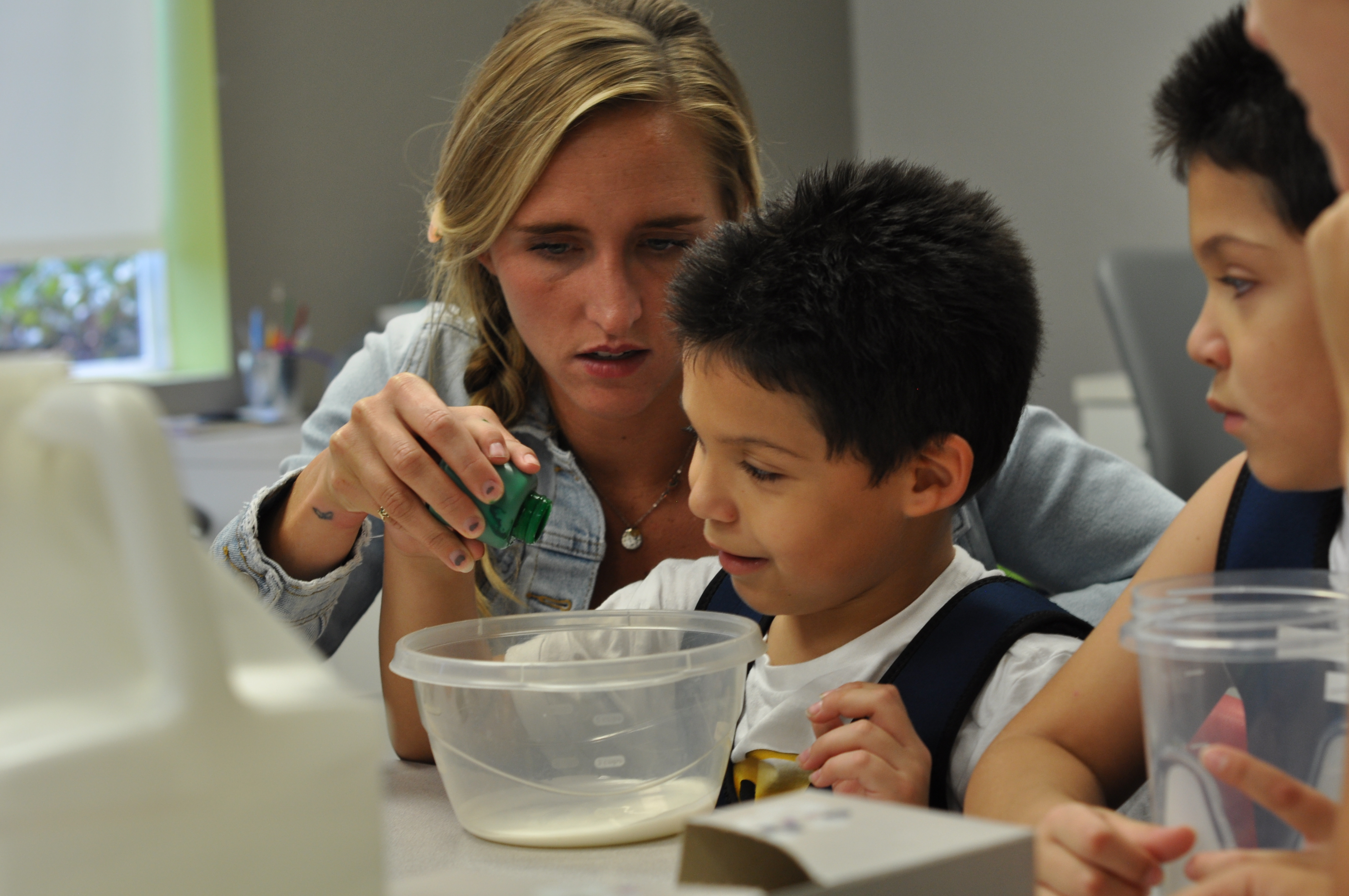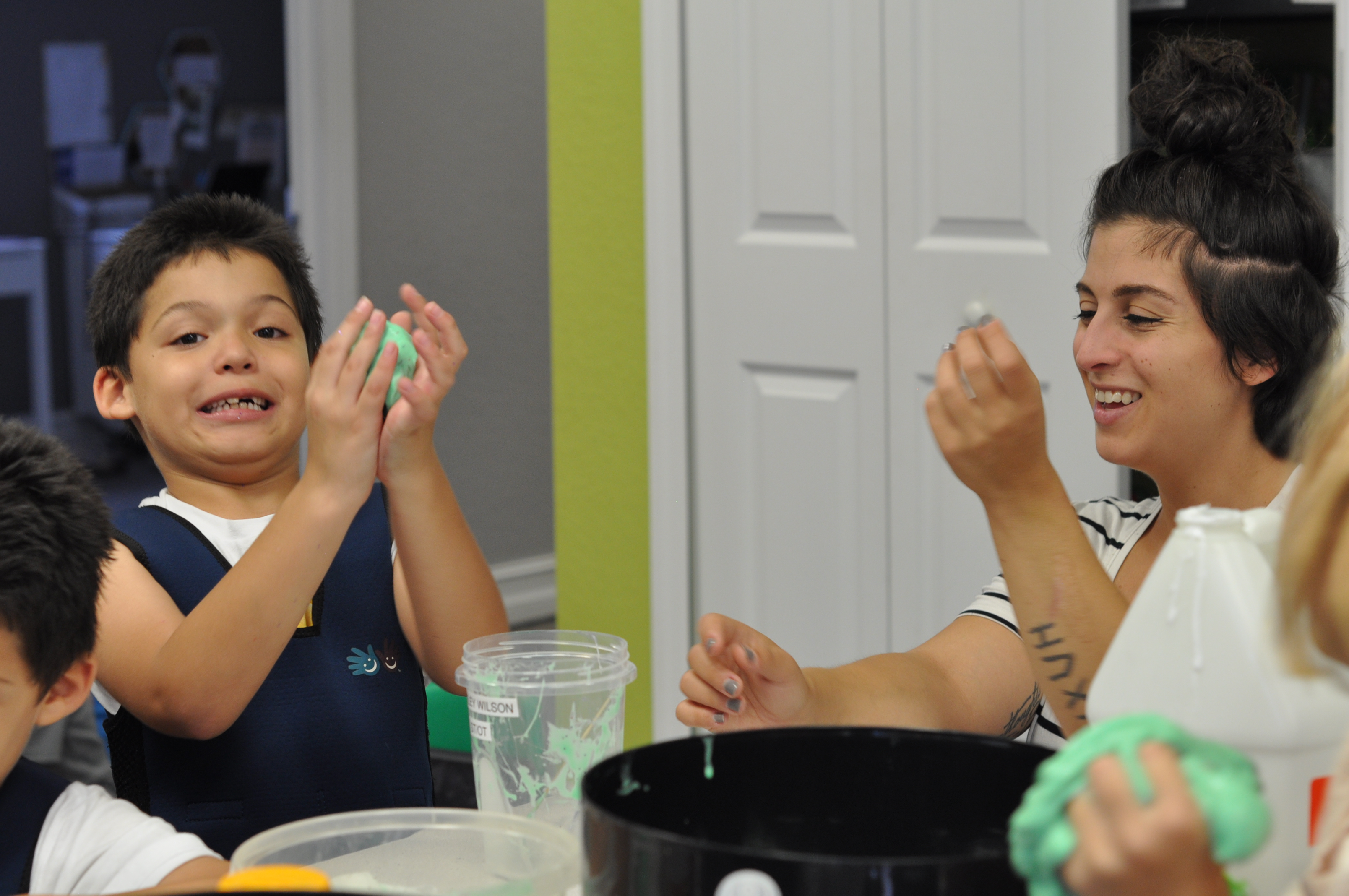Blog

Simple Slime Science Can Be Super Speech-Y!
Speech therapy sessions at FOCUS Therapy in Fort Myers are never formal affairs. Children learn best through play – board games, books, puzzles, blocks – and recently, slime-making. 
While slime itself – slippery, gooey, smooshy, somewhere between liquid and solid – has a lot to offer in terms of sensory integration, the simple process of making it in a therapy session can give children a lot of practice in key skills we’re working to develop.
(And the lessons “stick” because, well – slime is cool!)
We encourage parents to try this – and other simple experiments – at home to get their kids talking!
How Slime Science Encourages Speech
 Armed with some Elmer’s glue, baking soda, contact solution, paint and glitter, our FOCUS speech therapists recently spent an hour working with a few of our patients on:
Armed with some Elmer’s glue, baking soda, contact solution, paint and glitter, our FOCUS speech therapists recently spent an hour working with a few of our patients on:
- Sequencing. Learning about first-then, first-second-third in a story or process. The order of each step is important – whether making slime or a “baking soda volcano” or other experiment – to ensure the project turns out how it should.
- Following directions. In order to make the slime the right consistency, children need to pay attention, focus and follow instructions. The great part about activities like this, especially for children with conditions like ADHD and autism, is that the activity itself is interesting and engaging, so it’s easier to keep their attention for longer stretches – and an incentive to try to their best to hear the directives and follow them.
- Expressive language. This helps children practice communicating their own thoughts and experiences. We have children describe what they’re seeing, feeling, smelling and hearing. “What color is it?” “Is it hard or soft?” “Where should the glue go?” “How can we mix it?” “How much more glue should we add?”
- Social skills. At our recent slime-making speech session, we had several children join in the fun and work together! This gives them a chance to practice engaging with their peers in a way that is socially appropriate, productive – and fun! And with multiple therapists around the table – speech and occupational – overseeing the activities and offering support, children get the benefit of several professionals from different backgrounds.

- Turn-taking. There is only one bottle of glue. A couple different colors of paint. One bottle of glitter. Two stirrers. … And four children. Patience and manners are something all children struggle with from time-to-time. Many of our FOCUS kids struggle to understand and follow basic social rules and norms with their peers. Activities like this give children a chance to practice, with one-on-one oversight and direction.
- Syntax. This refers to the way to properly ask a question or say a sentence – the word order, grammar, sentence structure – so that it’s coherent and understandable. While we’re making the slime – gathering the materials, following directions and cleaning up – we offer correction and redirection when their communications are incorrect or difficult to understand.

- Articles. When a child is learning to speak, often sentence articles – “the” “an” “a” – are glossed over or forgotten entirely. Activities like this give them the chance to learn and practice.

- Functional/clean-up. Cleaning up is part of the slime-making process too. Messes don’t magically disappear! Having them carry the bowls and stirrers to the sink/trash and close the containers and screw on the bottle lids – all of this helps in stressing the importance of following directions, focus/attention, fine and gross motor skills, independence and teamwork/social skills.
Making slime is just one of many little science experiments that can act as so-called “communication temptations.” For more ideas, visit SpaceshipsandLaserBeams.com – or ask your FOCUS Fort Myers speech therapist! 
FOCUS offers pediatric speech therapy in Fort Myers and throughout Southwest Florida. Call (239) 313.5049 or Contact Us online.
Additional Resources:
Speech emerges in children on the autism spectrum with severe language delay at greater rate than previously thought, March 4, 2013, Science Daily
More Blog Entries:
Communication Temptations: How Speech Therapists Get Your Child to Talk, April 17, 2017, Fort Myers Speech Therapist Blog

Comments are closed.